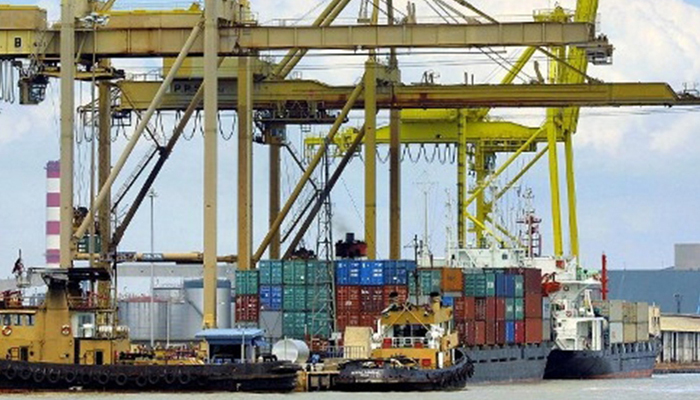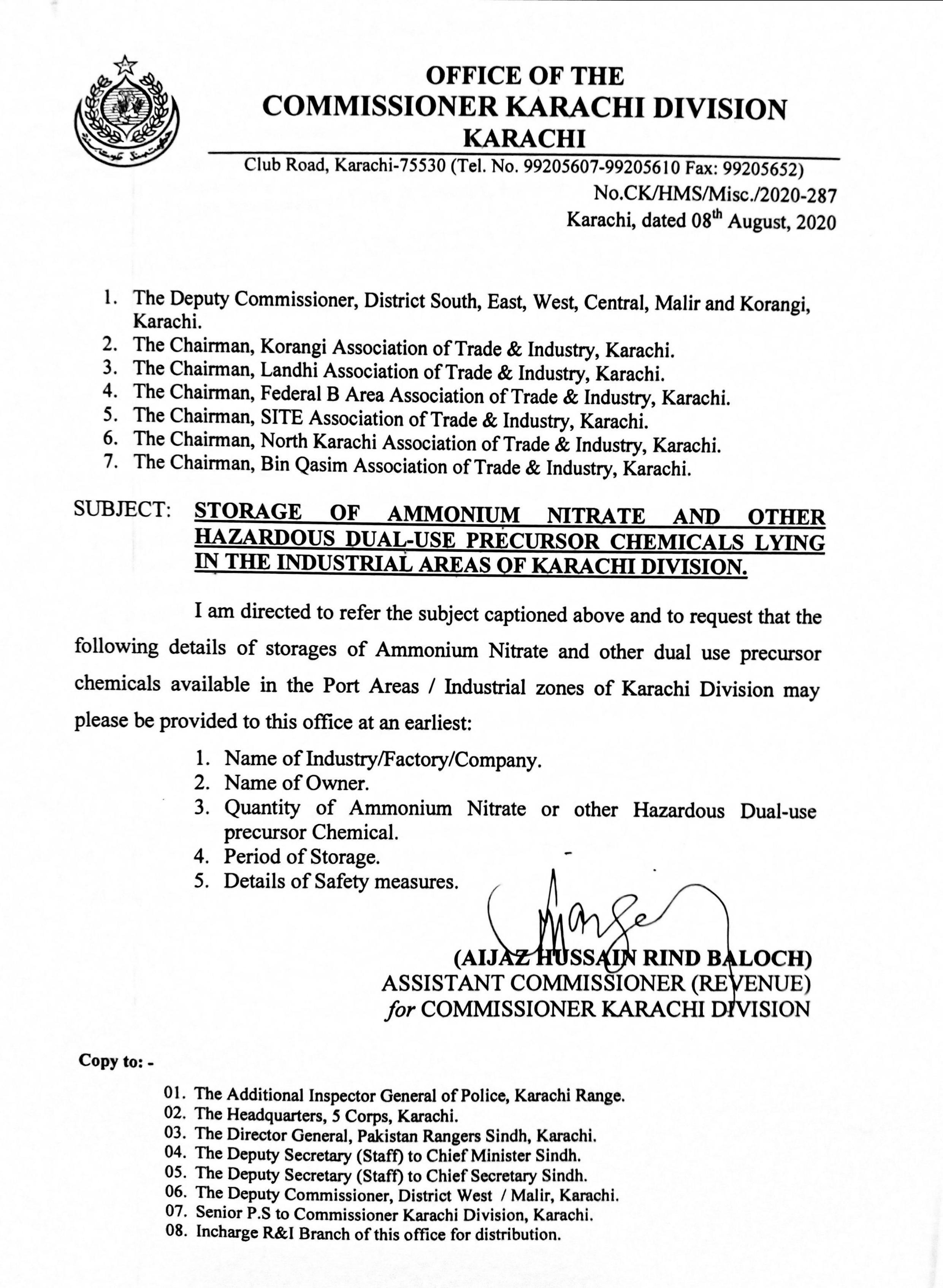Details about ammonium nitrate storage in Karachi sought
August 08, 2020

Commissioner Karachi, Iftikhar Shallwani on Saturday directed deputy commissioners and different industrial associations in the city to submit details of storage of ammonium nitrate and other hazardous dual-use precursor chemicals lying with them.
The move comes after more than 150 people died and over 5,000 were injured when 2,750 tons of ammonium nitrate languishing for years in Beirut's port caused a colossal blast.

The commissioner, in this regard has written to the Deputy Commissioner of the District East, West, South, Malir, Central, Korangi, West and East; chairman Korangi Association of Trade and Industry; chairman of Landhi Association of Trade and Industry; chairman Federal B Area Association of Trade and Industry; chairman North Karachi Association of Trade and Industry and chairman Bin Qasim Association of Trade and Industry.
The commissioner, in his letter, has requested them of the details of storages of ammonium nitrate and other dual use precursor chemical available in the port areas, industrial zones of the city, which he asked to be provided to his office at the earliest.
The commissioner has asked for the name of industry, factory or company and name of the owner, along with the quantity of ammonium nitrate or other hazardous dual-use precursor chemical, their period of storage and details of safety measures.
Read more: Ammonium nitrate that has caused numerous industrial explosions
Ammonium nitrate is an odourless crystalline salt that has been the cause of numerous industrial explosions over the decades.
When combined with fuel oils, it creates a potent explosive widely used in the construction industry, but also in homemade bombs such as those used in the 1995 Oklahoma City attack.
Read more: Lebanon explosion: What will be the political impact?
Many European Union nations require ammonium nitrate to be mixed with calcium carbonate to make a safer compound.
In the United States, regulations were tightened significantly after the Oklahoma City attack.
Under the Chemical Facility Anti-Terrorism Standards, for example, facilities that store more than 2,000 pounds (900 kilograms) of ammonium nitrate are subject to inspections.
Read more: Death toll from Beirut blast rises to 113, dozens missing
Despite its dangers, Oxley said legitimate uses of ammonium nitrate in agriculture and construction have made it indispensable.











